Facebook Live with Sneha Shah: How to do business in Africa without fearing the risks.(Oct 13)
Want to do business in Africa successfully? Learn how to break down barriers and prove your worth. On Friday, October 13th, Sneha Shah – Managing Director of Africa for Thomson Reuters shared with us how the African business landscape is currently positioned for female entrepreneurs, and how you can take advantage of it. Sneha has initiated partnerships with leading international market development, and works in close collaboration with public and private sector organizations in each country, to tackle the opportunities and challenges around financial and capital markets development. [bctt tweet=”Learn from @snehasshah how to do business in Africa without fearing risks” username=”SheLeadsAfrica”] Register below to get a FREE downloadable guide with Sneha’s top 10 tips on how to do business in Africa without fearing the risks. Some of the topics we’ll cover Are there businesses that are easier to establish in Africa than others? Find out. How young start-ups in Africa are changing the game. Challenges and opportunities business owners should expect when operating in Africa. How the African business landscape is currently positioned for female entrepreneurs. Leveraging millennials for African growth. What Africa can learn from other emerging economies. Innovate or disrupt – how to prepare your company for the future. Watch the video: https://www.facebook.com/sheleadsafrica/videos/1949040855319225/ Sign up for the e-book here: [ninja_forms id=156] About Sneha Sneha Shah joined Thomson Reuters in 2001 in New York and has held several global leadership roles across the financial and media business units in operations, product development, and technology. She was appointed Managing Director of Africa for Thomson Reuters in April 2015, and leads all of the financial, risk, tax and legal businesses across the region, providing data, automation and digitization solutions to financial institutions, governments, and corporates. She is responsible for driving the profitable and sustainable growth for Thomson Reuters in Africa in a manner that contributes positively to the region’s economic development. Born in Kenya and having worked in many African countries, Sneha is particularly passionate about initiatives that help empower Africa’s success. Sneha is a member of the Board of the US Chamber of Commerce, US-Africa Business Center. She is also a member of the Young Presidents Organization (YPO) and the African Leadership Network (ALN) and has been actively involved in several initiatives of the World Economic Forum (WEF) on Africa, including the Partnering Against Corruption Initiative (PACI) (current), and the Global Agenda Council on Governance (2014 to 2016). Prior to joining Thomson Reuters, Sneha was a commodities trader for Cargill in South Africa and traded money markets and foreign exchange at CFC Bank in Kenya. She holds a BA (Hons) degree in Politics with International Studies from the University of Warwick in the UK.
Anisa Mpungwe: Now clothing brands are offering a lifestyle
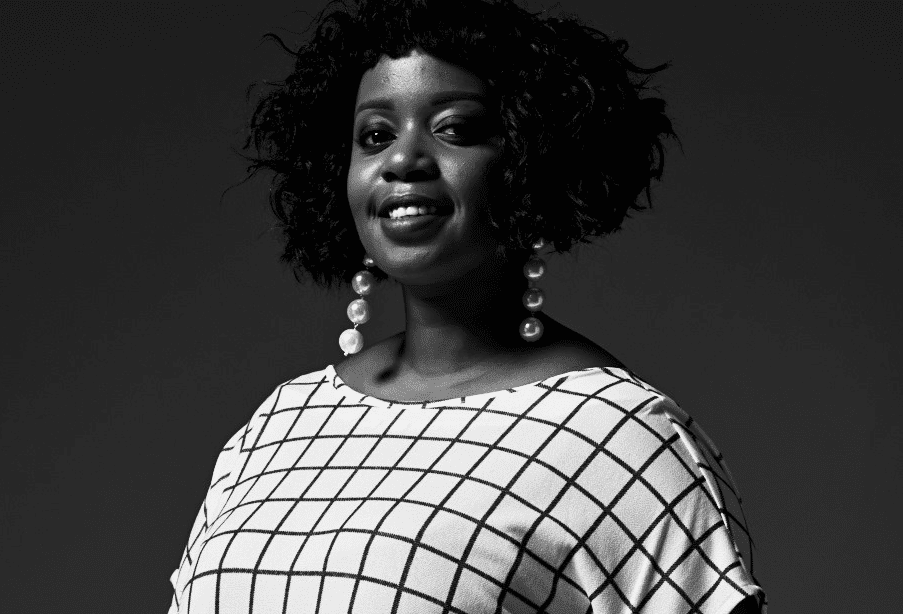
[bctt tweet=”I am African so that aesthetic cannot disappear, it will always be there – Anisa Mpungwe” username=”SheLeadsAfrica”] Anisa Mpungwe is a Tanzanian born, South African raised fashion marvel. She started her career at age 19 working for various fashion houses, magazines, and apparel factories within Africa, America, and the UK. Not a stranger on international runways, Anisa has showcased her work in fashion weeks in South Africa, Mozambique, Angola, Italy, Sweden and New York. You might have spotted this Motherland Mogul’s garments on stars like Solange Knowles, Anele Mdoda, Lira, Simphiwe Dana, Amel Larrieux, Sharon Smith, and Yukimi Nagano from Little Dragon. The former US first lady Michelle Obama donned Anisa’s clothing on her first visit to Johannesburg. Anisa has won the African Fashion International Emerging Designer Award 2013 and was the MTV Transform Today Award nominee. She has collaborated with brands such as LG, SPREE, Samsung, Maserati, Converse, Nestle, BET and Bobbi Brown. You can find Anisa between Johannesburg, Pretoria and Dar es Salaam studios. SLA contributor, Kutlwano Mokgojwa, checks in with the humble and spirited Motherland Mogul to get the lowdown on celebrating 5 years in business, creating a lifestyle brand and shipping worldwide. It has been 5 years since you opened the door to your flagship store, what would you say you owe to still being in business today? I think consistency is important in any business and across everything that you do. There are certain things that you must always do and always take care of. Another important thing is having a good team. There are days when you will not feel so great and you do not want to deal with customers, you can always pass the responsibility along when you have a good team and in my experience, getting a good team together takes a while. Your brand is described as having a strong African influence, prints and modern tribal. Do you think this description limits the brand or does it open the right doors? I think it is all of the above. People always need to relate your brand to something, whether it is an experience in their lives or something they have seen. I am African so that aesthetic cannot disappear, it will always be there. Our aesthetic will always be around the African heritage but I am also really interested in sportswear for example. I have travelled and moved around a lot and because of that, I am able to come back and tell a story through the garments. The change in the design is not that I am trying to target a specific person but it is just where the LoinCloth and Ashes (LCA) story is. You have paired up with vibrant talk show host and radio personality Anele Mdoda as your brand ambassador, how does she embody the LCA brand? Anele is quite a complex woman and that is an LCA girl – somebody who is strong and vulnerable. Somebody who has something to say wants to elevate and fully enjoy her life. Anele is all those things and she is crazy too, she is completely nuts and I love her for that. I identify the LCA girl in her; she really aspires for better in all areas. You are known to feature on a lot of runways. How do you come up with inspiration for each collection? How do you incorporate your brands aesthetic to ensure your collections are true to the LCA brand whilst still being fresh and relevant? It has to do with what is happening for us at that time but also keeping in mind who our audience is. For example, if you do something like New York Fashion Week, what they would expect is a whole lot of bead work and when you show something else it creates a kind of shock wave. When you take African print somewhere like Stockholm where they are known for being minimalist you will blow their mind with so much colour. Same goes for Germany or Berlin. I know we have one of the biggest client bases in Berlin and they love the print because they don’t have that sort of thing there. So when we create collections it is about flying the flag but doing so in a manner that is relevant to the audience and to the brand. [bctt tweet=”When we create collections it is about flying the flag in a manner that is relevant to the audience” via=”no”] Since your establishment as a women’s wear brand, you have ventured into quite a number of things such as your junior wear, home décor, giving industry talks and consultations. What motivated you to head in that direction and how has that contributed to LCA being such a big brand in the fashion industry? There was a time when you went into a clothing store and it only offered clothing but now many brands are offering a lifestyle. So if I can’t afford the dress, I can maybe afford to buy a napkin or to buy my little baby a dress. I wanted LCA to also follow that suit because we don’t only talk about women’s wear when we are in the studio, we talk about everything else. I am not known to hide my experiences so that is where consulting and mentoring comes into play. [bctt tweet=”We are looking to celebrate feminism and rediscovering the word sexy – Anisa Mpungwe” username=”SheLeadsAfrica”] You have a new collection coming up, can you tell us more about that? Well, I cannot say much but it is a summer/spring collection. We are looking to celebrate feminism and rediscovering the word sexy. What does it mean for LCA? It means there will be lower necklines and high hems. You started shipping your clothes worldwide this February, how would you advise a small business owner who wants to extend their distribution in the same way? Firstly, I think it is important for one to evaluate their international client base. A lot
Thabiso Mahlape: I want to grow the amount of South African black authors in the industry
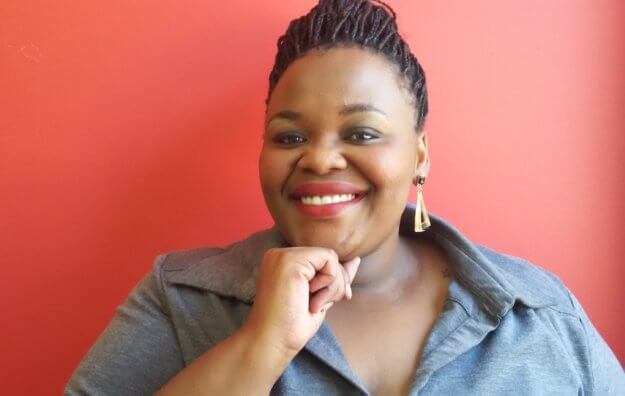
[bctt tweet=”We chat to Thabiso Mahlape, about her publishing imprint, Blackbird Books” username=”SheLeadsAfrica”] Publishing aficionado, Thabiso Mahlape has been on our radar for quite some time now. Her publishing imprint, Blackbird Books has garnered a lot of success and already has memoirs and autobiographies by big names under its belt. Blackbird Books aims to bring stories by black authors to life, giving them a voice and a platform to grow and hone their skills as successful authors. Being the first black woman with her own publishing imprint has had its challenges, but Thabiso makes it known that she is doing an incredibly important job of making sure that our voices, stories, and talents are being seen and heard. Below, Thabiso tells us how she is exposing black talent, one paperback at a time. How did you get into the publishing industry? I got into the industry by chance. I had done engineering for about 4 years before deciding to study for my first love, journalism. I didn’t get in to do journalism but my guidance counselor suggested I try publishing. After studying I didn’t have a job for 3 years until I landed an internship at Jacana Media, and my career took off from there. Please tell us more about your brainchild, Blackbird Books? Blackbird Books is pretty much the extension of the work that I was doing at Jacana. I wanted to expose stories that are unapologetically black and written by black people. After I had my daughter in 2014, I decided to finally venture into developing Blackbird. Have you had any challenges as a woman, when it comes to making it in the industry? As the first black woman to have my own imprint I have been undermined by all men, black or white. I have even been undermined by black women. I was walking with one of my author’s one day and my white male colleague told him, “if you’re looking for a real publisher, come speak to her” pointing at a white woman. I’ve had all kind of backlash, but that’s not to say that I have not been embraced by those that love Blackbird. What are you currently reading? The Memory of Love by Aminatta Forna. [bctt tweet=”I wanted to expose stories that are unapologetically black and written by black people” via=”no”] What problematic issues have you picked up from being in the publishing industry, especially as a black person? The publishing industry is extremely white. It was definitely not representative of the majority of the country, but it is making progress as time goes by. More and more black authors are being exposed and the status quo is changing. What inspired the name, Blackbird? The name was suggested by a colleague of mine at Jacana. The name stems from the Nina Simone song called “Blackbird”. The song refers to the struggles of a black woman and how that woman wants to spread her wings but finds a lot of difficulty in this due to societal issues bringing her down. What future plans do you have for the publishing imprint? Some plans I can’t spill just yet but I want to see Blackbird grow and solidify it as a publishing house. I want it to be a platform for black people to find themselves and grow the amount of South African black authors in the industry. What advice do you have for young black women who want to break into the industry they love? Invest in your work, put in the time and work really hard at it. We live in this “Instagram” time where everything is seen and instant gratification is important. You cannot get anywhere without working really hard. Make sure you are doing the right thing, which is what you want and are most passionate about. If you’d like to share your story with She Leads Africa, let us know more about you and your story here.
Morongwa Maifo: You are never too old to learn or too young to teach
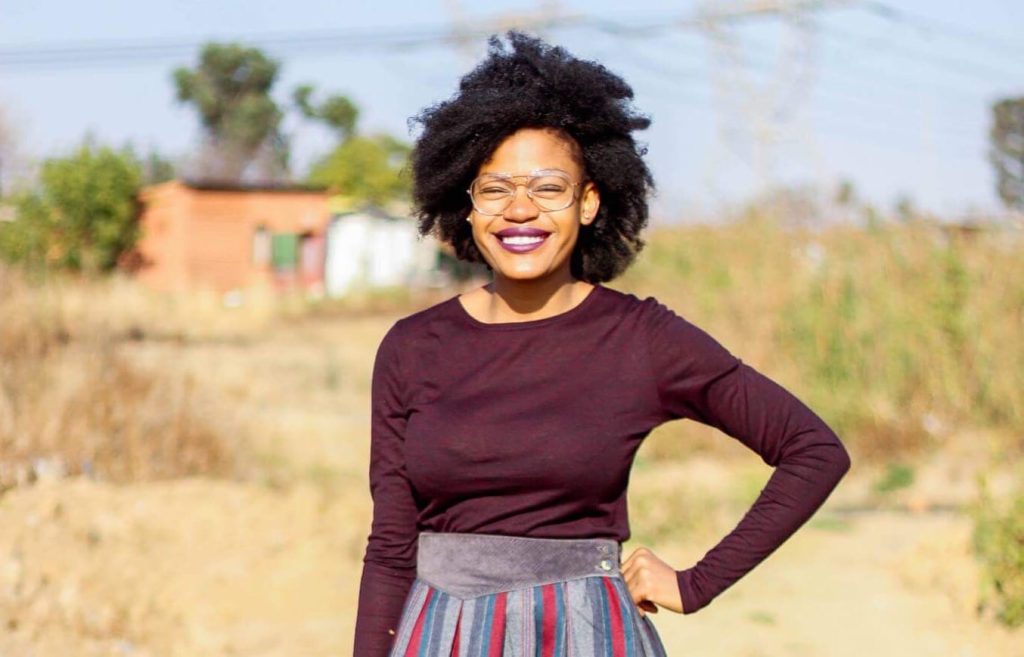
[bctt tweet=”Mo combines her love for chemistry, fashion, and literature in her daily life and hustles” username=”SheLeadsAfrica”] It is a public secret that the future of the Africa we envision lies solely in the hands of each and every young individual who dares to dream. The inclusion of women in various decision-making positions has better positioned and equipped young women to step up in their entrepreneur journey. Barriers are continuously being smashed, as the African girl dares to take over, below is an interview with Morongwa Maifo, the owner of VintageKlozet. Morongwa, aka Mo, is a young woman determined to let her passion become her success ladder. Hi Morongwa can you briefly tell us who you are and what you are currently up to? I’m a young dynamic phenomenal woman named Morongwa Nesly Maifo. I’m just an ordinary person who grew up in a normal background. My journey has been very challenging, especially not growing around parents. I spent most of my growing years with my brother, as my parents were at home in the village. I can say that I started learning responsibilities of doing things by myself at an early age. Growing up I had low self-confidence, I have always been that young girl who would do anything to buy a friendship or try harder to make sure people accept me. Nobody ever taught me it should start with you. But these happened for a purpose as it’s now revealing itself. I enrolled for my first degree at the University of Witwatersrand in Chemistry, am currently in the completion of my honors degree in Chemical engineering. I also obtained a certificate in sales and marketing with Unisa. All I’m up to right now is the new baby VintageKlozet and Club Readership. Chemistry, fashion, and literature are worlds apart, tell us how you manage the playing field you have occupied? In my growing up journey, I realized I get bored easily with routine. I’m an explorer, a huge fan of learning, and I’m more progressive when I learn various aspects of content. At the at the end, I noticed how everything is interconnected. I enrolled for Chemistry with Chemical Engineering because I have always been fascinated by science. I want to become an engineer. My most motivation in obtaining this degree is to contribute back to society by using the knowledge I have gained to solve daily problems. Growing up, I suffered a lack of confidence in speaking, reading, and writing, specifically in English. Because this bothered me a lot, I started reading books from high school, and slowly I found reading fascinating. This hobby continued until varsity, I started reading a lot, especially motivational books. I have always loved clothes, initially, I underestimated it because I thought it was just a women’s thing. It became unique when I would play with my mother’s wardrobe. That lead me to notice that I’m not a fan of trendy fashion, then I finally figured my sense of fashion is vintage. [bctt tweet=”I’m not a fan of trendy fashion, my sense of fashion is vintage – Morongwa Maifo ” username=”SheLeadsAfrica”] As VintageKlozet aptly describes, what motivated you to start your own vintage retailing business and how responsive has been your target market? I have always been motivated by Bonang Matheba especially when she said, “If you love something, get someone to pay you for loving that thing, then you will never work in your entire life”. I started VintageKlozet because of my passion and love for old style, and how I have found myself through this styling sense. As a final year student, I have never believed I was sent to college so I can work for someone else. I have always believed as African men and women, we all have the skills to start our own companies and improve our economic status as well as that of the future generation. As the business just recently started, the response has been good so far, most people seem to fall in love with the culture of vintage, how unique it is and how it tells the story. So far, I have got responses as far as Cape Town, and few people from Zimbabwe. How important has social media been to your business and what lessons can other aspiring fashion retailers get from you? I’m still in the journey of learning and exploring diverse ways to market the business and establish it. There is so much power in social media because so far 80% of sales VintageKlozet has made are from social media, particularly Facebook and Instagram. Obviously, there are many ways to advertise, but so far these have shown a positive response to the business. [bctt tweet=”I have never believed I was sent to college so I can work for someone else” username=”SheLeadsAfrica”] You mentioned that you are also CEO of Club Readership, briefly tell us what it is all about? Club Readership it’s a book club before everything. It is created for readership in Africa, focusing on African literature, of course by African authors. This is the institution that noticed a gap of reading outside academics in Africa and is determined to bring back the culture of reading in a fashionable manner. It believes we all have stories to tell and to embrace. It would like to improve and celebrate the culture of reading mainly in black communities. As it promotes this culture of reading, it ensures to produce relevant material for Africa, therefore it publishes books. Club Readership encourages people to write and makes it easy for them to publish, for more info, people can visit our website. How challenging have all your roles been? Honestly, challenges serve an opportunity to grow you as a person. I have found myself doing uncomfortable things but turned my being into effective. It is challenging, but it is the enthusiasm of learning that keeps me pressing forward each day, therefore I embrace challenges. Aspiring young business women out there are dying to know
Zizipho Dyubeni: I understood the struggle of having inconsistent income

[bctt tweet=”Zizipho Dyubeni is behind an agency built on the premise of heightening the voice of creative Africa” via=”no”] Zizipho Dyubeni is a communications specialist and entrepreneur from Cape Town, South Africa. She uses her creativity to promote and uplift fellow entrepreneurs in the township areas where she grew up. Through her company Blue Apple Concepts, Zizipho curates and organises bespoke events aimed at entertaining and empowering the youth, especially those interested in entrepreneurship. One such event is the popular GlamHour, which serves as a platform for fledgling entrepreneurs in the beauty industry to showcase their work, network and gain new clients. The events also offer pampering massage sessions, facials, nail therapy and fresh delicacies for women who want to unwind in style- a rare and novel treat to the township areas of Khayelitsha. Then there’s the Lingerie Fair, aimed at encouraging young women from disadvantaged areas to openly talk about sex and practice healthy lifestyles. Apart from the pioneering strides, she’s made in the entertainment industry, Zizipho is also a speaker, entrepreneur, event coordinator, concept developer, a freelance communications specialist, content producer and a much-loved radio personality for 2OceansVibe, an online streaming radio station. Being such an inspiration, we just had to share her amazing story with you, our SLAy community, and find out what makes this ambitious creative tick. Tell us about yourself. Who is Zizipho Dyubeni? I am a young 27-year-old mom to 8-year-old Storm. I grew up in Milnerton where I went to high school. With a passionate love for all things creative, I furthered my studies at the University of the Western Cape where I later dropped out due to financial constraints. Fast forward nearly 8 years later I have created a creative agency built on the premise of heightening the voice of creative Africa, work in media. I enjoy a life wonderous and eventful! I am also an events coordinator with a specific interest in women related lifestyle eventing. What inspired you to start BlueAppleEye Concepts and where do you get the inspiration for all these innovative event concepts that you’ve come up with? I was and still am a freelancer, I understood the struggle and pain of having inconsistent income. The main idea behind the Creative Corner is to regulate work activity for creative freelancers and in doing so creating a solid creative e-commerce. What challenges have you had to overcome on your journey in the entertainment and communications industries? I would be lying if I said I have overcome a lot of the challenges, the creative industry is one that requires resilience. Right now our biggest struggle is merging business rationale with the creative concept. Tell us about your other creative and business pursuits… I am an influencer, MC, vocalist and radio DJ outside of running a small business. [bctt tweet=”Zizipho Dyubeni: The creative industry is one that requires resilience ” username=”SheLeadsAfrica”] How do you manage to remain focused and disciplined to keep up with such a packed schedule? My work does not feel like work. I am passionately living out my dream every day, on hard days I cry and pray. My family, friends and business partner keep me grounded. What are your plans for the future? For my business to grow into the biggest service agent in Africa housing plus 200 000 or more freelancers with sufficient work monthly. That is the biggest dream. [bctt tweet=”My work does not feel like work. I am passionately living out my dream every day” username=”SheLeadsAfrica”] What do you do for fun and relaxation? I party, read, listen to jazz and spend time with my loved ones. What are the 4 skills you had to learn/use when entering the entertainment and communications industries? Listening Collaborating Paying attention to detail Concept development If you’d like to share your story with She Leads Africa, let us know more about you and your story here.
Elsie Mutsaka: You must do what sets your heart on fire

[bctt tweet=”I realised that my brand and I are one and so my blog should be the same @ElsieMuts” username=”SheLeadsAfrica”] Elsie Mutsaka is an up and coming PR dynamo, social media marketer and blogger from Zimbabwe based in Port Elizabeth, South Africa. Her accessible fashion aesthetic is inspiring women from all walks of life to be confident in their style. After discovering her personal style, Elsie started getting questions about her outfits and where she gets pieces. That encouraged her to start blogging and share her style with a wider range of people. SLA contributor Anelisa Nokoyo had a chat with Elzie to find out what inspired her quirky fashion blog, and what she has in store for the future. When did you start blogging? Initially, I started blogging last year, April 2016 under the name differentlyconfident. Then this year I changed my domain name to my full name. I realised that my brand and I are one and so my blog should be the same. What would you like to achieve with your blog? I have always wanted to share my style with people and through this blog, I manage to do just that. Most importantly I wanted to bring about the idea that style is not about the price tag or label, and that you can look perfectly chic while still living within your means. Growing up I had times when I was not as confident about how I looked, but as I grew older I became comfortable in my skin, looks, and style. That’s the exact same message that I would like the people that read my site to get each time they read my posts. It’s basically a site for any type of woman to visit and get outfit inspiration, love the skin they’re in and know that they can create their own unique style. Also, while people shy away from thrifting, I find that it’s one of my favourite things to do with my sister each holiday, as you get stuff that nobody else has. So I always mention where I get my clothes for each blog post and I’m not embarrassed that I shopped a SALE or that I thrifted. Ultimately, I intend on building a brand that inspires and speaks to women who fully know and understand themselves or who at least aspire to. What do you enjoy most about blogging, and what are some of the challenges? I really enjoy putting outfits together and reading comments from people who read the posts. Most of the time I really appreciate it when people give their honest opinion and usually, my family and friends do the most. I think one of the challenges is when the writer’s block strikes. Sometimes you really have good photography but you are just not satisfied with your writing, but when I eventually get it together it’s amazing because I get to think out loud. What are some of the wardrobe essentials that you think each woman should have? Well, personally I believe everyone should have a really good quality blazer, a good pair of denim jeans, black pair of heels, very good quality handbag and at least one vintage or pop of colour item. I could go on and on, but those are my faves, just that I own more than one of each. Whenever I am asked to, I style people or help them create their dream wardrobe so the essentials differ sometimes depending on your style. Besides fashion, what else do you write about? Besides fashion sometimes I write about things that matter to me like issues that women face, but I do this as a contributor for other platforms. Other times on my blog I share about my beauty routines which are quite simple. What are some of the lessons you’ve learnt since delving into the world of blogging? I have learnt that you must do what sets your heart on fire, sometimes trends in the blogging sphere are awesome but they are not always your thing. It’s okay to do what you feel comfortable in. Also, there are so many bloggers out there and everyone has a niche and something unique they bring to the table, so it’s good to celebrate others. I enjoy commenting on other people’s blogs. It does not take anything away from me when their work and skill grows, and if you appreciate other people’s work oftentimes the favour is returned. [bctt tweet=”If you appreciate other people’s work oftentimes the favour is returned” username=”SheLeadsAfrica”] What else do you do besides blogging and how do you blend the two occupations together? So, besides this blog, I do public relations, which means I spend my days working as a social media marketer for an online store and managing other platforms for clients. Because the social media thing is my 9-5, I usually blog in the evenings and do shoots on Saturday mornings. It’s all about organising your very little time well. The two also blend well because it’s all use of the digital media, so sometimes I reply to comments on the job. bcct You need to use what you have and what’s around you Give us your top three tips that you’d give to anyone who wants to start blogging… Once you figure that you want to blog GO FOR IT! I mean just do it. Secondly, just trust the process and even if like 3 people read your blog that’s okay, it takes time to grow an audience. When I first started blogging a close friend of mine offered to take pictures of me, she had no camera experience whatsoever but as my blogging got better, her photography did as well and because she believed in me so much I gained confidence. What I am trying to say is you need to use what you have and what’s around you. I did not have a professional photographer but I had a friend and that helped me grow, and here
Fikile Skhosana: I help victims to become survivors
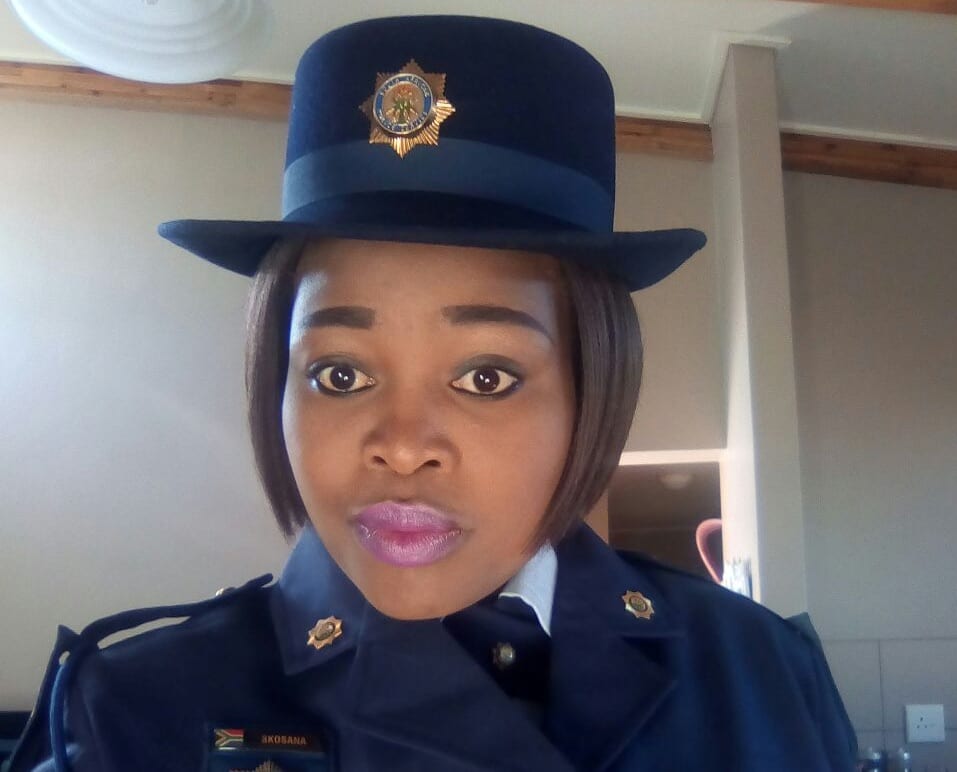
[bctt tweet=”I became a police officer because I like challenges, protecting others, and solving problems” username=”SheLeadsAfrica”] Fikile Skosana is a Detective Constable and Investigator employed by the South African Police Service, under Family Violence, Child Protection, and Sexual Offense Unit. She is constantly solving critical cases related to women and child abuse and assault. Fikile is giving women, whose rights are violated, the freedom to speak out and find justice and closure for their ordeals. This brave and compassionate 33-year-old always finds it rewarding when she solves a case and turns a victim into a survivor. When most young girls dreamed of being nurses or working in other ‘feminine’ jobs, you chose to be a police officer. How did you come to that decision and what did your parents say about it? I became a police officer because I like challenges, protecting others, and solving problems. My parents were not happy at first but now they believe in me. Police work is seen as a field typically better suited to men, what has been your experience with working in a male dominated field and have you ever felt incompetent because you are a woman? The job is not gender-specific, ultimately police officers have to be the same regardless of gender. As a woman, I don’t go out to fight but to calm the situation. I always feel competent, especially after solving a case. For women who feel guilty or responsible for their rape ordeal, sexual assault or abuse, what do you say to them or how do you act in such circumstances? How do you create that safe space for them that allows them to speak up freely and be heard? Some kids feel more comfortable talking to a mom-type person, same as rape victims, they feel free and safe talking to women. I listen to them, I tell them they are safe, I help victims to become survivors. What is your motivation every morning that keeps you going to work in a challenging and potentially risky field? Helping people and stopping other people from becoming victimized. The difference I make in someone’s life is what motivates me. [bctt tweet=”The difference I make in someone’s life is what motivates me – Detective Constable Fikile Skhosana ” username=”SheLeadsAfrica”] What is the most fulfilling aspect of what you do? The most fulfilling is when offenders get higher sentences. Solving cases and giving victims some type of closure is what I find most rewarding. How can young women wanting to enter police-work mentally prepare themselves for work in such a field? How does one know that they are a good fit for this type of career? I encourage women to consider law enforcement as a career if they are willing to put in time and hard work. They shouldn’t be discouraged and think that this is a male dominated world. They can do anything that a man can do. [bctt tweet=”I encourage women to consider law enforcement as a career if they are willing to put in time & hard work” via=”no”] Being a police officer, do you enjoy action movies or dramas on TV and if you do, which one is your favorite and why? I watch ID Extra channel 171 on DSTV. The shows on that channel are all about crime solving. I actually learn different tracing techniques there. If you’d like to share your story with She Leads Africa, let us know more about you and your story here.
Munozovepi Gwata: Nobody is really taught how to manage their personal finances
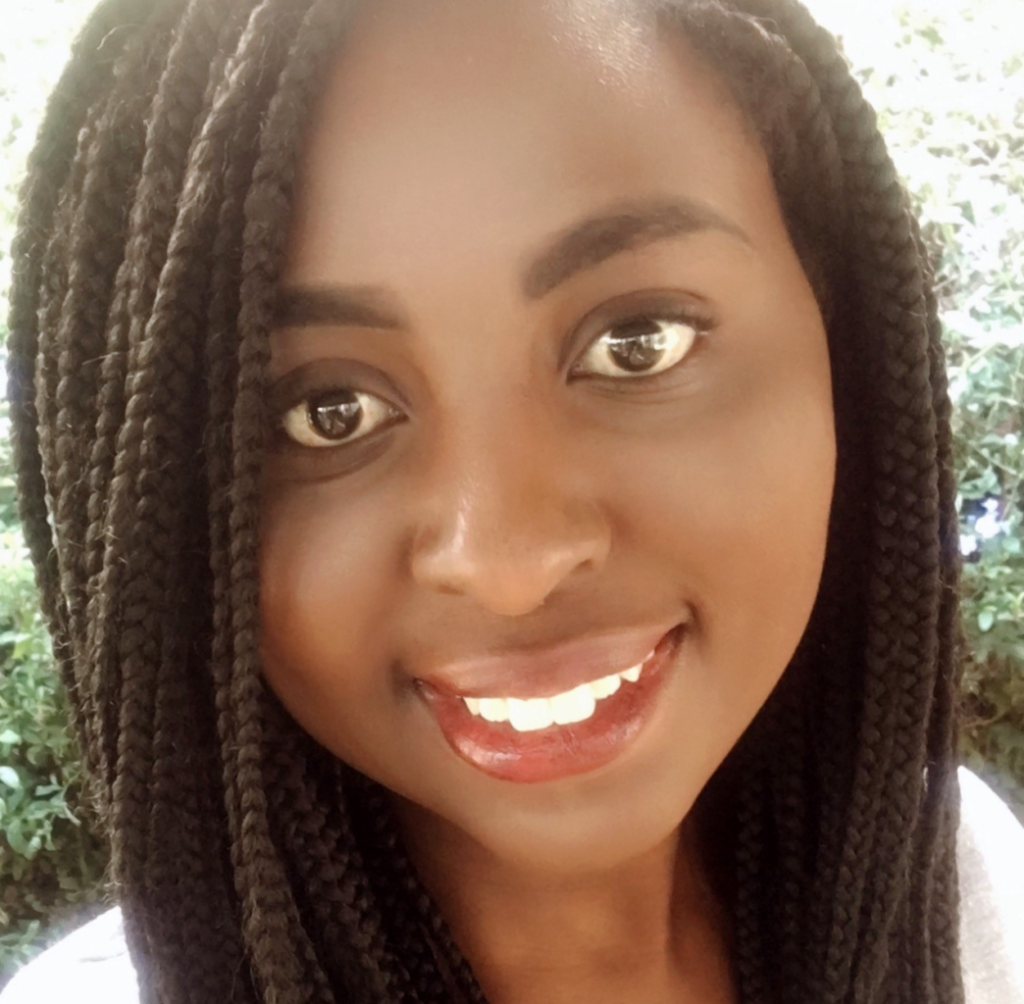
[bctt tweet=”We want to instill financial literacy skills into children from a very young age so that they can understand money” via=”no”] Munozovepi Gwata is an ambitious entrepreneur and an aspiring Chartered Financial Analysts and Hedge Fund manager. She is the founder of the Aworks, a conglomerate with subsidiaries Arete’ Tech, Kukura Capital NGO and Kukura Capital Investment Trust. Her personal mission statement is to inspire people throughout the African continent and to create innovative solutions that will bring upon development, wealth, and success for the continent. Munozovepi’s goal is to build Awork to the same status and standard of Berkshire Hathaway which she has no doubt that she will accomplish. Why is financial literacy important and why start an organisation that educates people on the matter? I believe financial literacy is extremely important just like learning Maths and English. It is the fundamental skill that equips people with the essential ability to effectively save and make money. Unfortunately, nobody is really taught how to manage their personal finances. Not at one stage in our lives do we come across financial literacy education in the mainstream education system. I find this very alarming and I am a strong advocate that financial literacy should be included in the mainstream curriculum. The consequence that we have now, is that people are not equipped to manage their personal finances and they do not know how to save or grow their money. Therefore, instead of having the opportunity to pass down wealth to the next generation, they are passing down poverty and debt. I felt that I could no longer sit on the sideline and watch this continue to happen, this is when I decided to become a part of the solution and build an organization that addresses the problem. In starting Kukura Capital, did you decide to go solo or have a business partner(s) and why did you decide to go solo/partner up? In starting Kukura Capital, I decided to go solo. I do have a great team of friends and family that help me and soon we will be adding another 8 new team members to the Kukura Capital team. When I started Kukura Capital it was only an idea. A lot of people, even though they shared and agreed with my vision, didn’t share my hard work ethic, and because of this, I did not manage to find a full-time business partner. It still worked out great in the end. I was given a lot of good advice on how to develop the organization, leaned on some great books and to my surprise in such a short time we have managed to pick up and maintain a great momentum. We also have the support from other well established NGO’s and Institutions which is great. When did you establish Kukura Capital and what has been the biggest lesson you have learnt thus far? Kukura Capital was established last year in November and it was inspired by my own journey to learn more about the financial industry. In gathering information, I kept thinking to myself there has to be an easier way to learn about financial literacy, and from there Kukura Capital was born. The biggest lesson I have learnt? I have to say I have learnt so many things, but the biggest lesson is that knowledge is truly power. As an organisation, one of our main goals is to make knowledge about financial literacy easily accessible and to break down the complex concepts of finance and make it simple and easy to understand and apply. Doing such a simple task has proven to be powerful. When you tell an individual of any age, be it a high school student or a young adult, that if you save this amount of money every month and reinvest it either in the market, or in a business and you can get this x% in return, people’s eyes really light up, and they really do change their spending habits. The things people always say to me is: “Why didn’t anybody tell me earlier? I would have been a millionaire a long time ago.” What gave you the courage to start your organization? What advice would you give to someone who is thinking of going into business? Fortunately enough, my past experience in leadership positions and community involvement gave me a lot of confidence to start. Also, having a business and finance background also gave me the confidence to start Kukura Capital. However, to be honest, I didn’t really think too much about it, I really believed what the organization stood for and went for it. That would be my advice to anyone starting a business. In addition to running Kukura Capital I also run a FinTech business and when I started I had plenty of doubts but I quickly moved away from any negative thoughts and just went for it. In addition to that, I will advise anyone who wants to start a business to fully commit to their business and make sure that they love what they do, so even when it gets tough they are still driven to keep going and succeed. [bctt tweet=”I’ll advise anyone who wants to start a business to make sure that they love what they do” via=”no”] You have recently finished a children’s book “The Rich Life of Thabo”, what brought about the decision to write a children’s book on financial literacy and in what format and where will the book be available? I really love this book and wrote it with my talented friend Charisa Mujuru. I am really excited for this book because it is definitely going to inspire a lot of young kids to be like Thabo. Thabo is the main character in the book and he lives in a township and one day he decides that he is tired of never having enough pocket money so him and his sister, under the guidance of their grandmother, decide to start a business. The book really
Lebogang Mashigo: Our role is to present platforms for discovering, expressing, empowerment and connecting
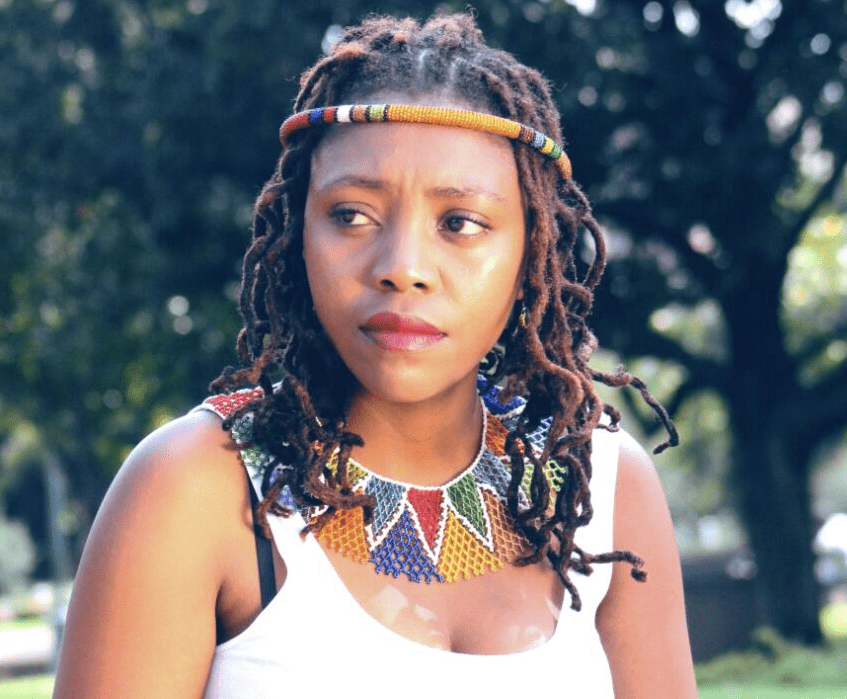
[bctt tweet=”At first it was about numbers but now our focus is about quality and impact” username=”SheLeadsAfrica”] Lebogang Mashigo is a 27-year-old social entrepreneur from the former KwaNdebele region, currently Thembisile Hani, of South Africa. She is the founder and director of Nubreed Company and Music Institute. She is a YALI (Young African Leaders Initiative Alumni in Business and Entrepreneurship, a Monash South Africa Lead (MSA Lead) fellow and was named the Mail & Guardian’s top 200 Young South Africans 2016. Lebogang is very passionate, brave and believes in her strength and that of others. She has been nominated twice for the Women Real Architects of Society Awards. Lebogang has also been profiled on Mzansi Insider, On the Spotlight with Ashraf Garda as well as on Kicking Doors with DJ Sbu on CNBC Africa. She Leads Africa contributor, Kutlwano Mokgojwa catches up with her on all things Art, Music and youth empowerment. What role does Nubreed have in the community and how does it fulfil that role? Our role is to present platforms for discovering, expressing, empowerment and connecting. We started a just a music project that gave music lessons. Today we have become more than just a music project. We educate, discover, empower and partner with young people and communities for change. What effect does empowering the youth with music have? How has that inspired you to venture into the Visual Arts and Life skills? Coming from a rural area where little is happening to stimulate young people growing up in the region of former KwaNdebele, I didn’t want to change the world, but I understood that young people are gifted and they can express themselves through music, it made sense to start NuBreed the music institute. We are not changing people but we have inspired young people to be confident, to go after their dreams, to discover opportunities within the music/arts industry. Through workshops and many events, we host, young people, connect from those in the industry and learn from them. Working with young people helped us to discover other talents and needs which propelled us to create other platforms for visual arts, life skill workshops and business workshops. It is all part of our mission to educate, empower and develop. We now host the biggest annual talent show in June called KwaNdebele Got Talent where we call for auditions and in June young come from all over the region to showcase their talents and compete for a big cash prize and other development opportunities. [bctt tweet=”Our role is to present platforms for discovering, expressing, empowerment & connecting @NubreedMI” via=”no”] How has Nubreed been welcomed into the community, what relationships have you formed and how do these relationships help the organisation? NuBreed is a recognised brand that is associated with youth, Change and Empowerment. We have been welcomed with open arms in the community. We work with other community structures, we’ve worked with schools, churches and other NGOs. However, we still see room for more networks. How old is your target market and what socio-economic challenges do they face? As the music institute, we’ve worked with many young. At first, it was about numbers but now our focus is about quality and impact. So I will say we are growing our impact. [bctt tweet=”We’re not changing people but have inspired young people to go after their dreams” username=”SheLeadsAfrica”] What kind of syllabus does your organisation follow and how has that helped with your partnership with the University of South Africa? NuBreed uses the UNISA music syllabus to teach our students, we have UNISA accredited teachers and we do UNISA Music exams twice a year. This enables our students to receive UNISA music certificates and earn university credits. Your organisation is a non-profit entity, how does that affect your operations in terms of funding and how do you manage the financial pressure? Funding has been a big challenge. We are not formally funded. We have received donations from individuals now and then. But this has encouraged us to develop our own fundraising programme in-house. We enter competitions for funds and we are always looking for partnerships. Now we are looking for opportunities to expand. All this is inspired by our need to sustain NuBreed. What personal lessons have you learnt through your leadership of Nubreed? Personal lessons: It is important to say no to some ideas. [bctt tweet=”It is important to say no to some ideas @leewaMashigo” username=”SheLeadsAfrica”] If you can spend a day in the life of anyone, living or dead, who would it be? I would really like to be Oprah for a day. I would build art schools in rural areas. If you’d like to share your story with She Leads Africa, let us know more about you and your story here.
How to build your network of African distributors – The Yenati example
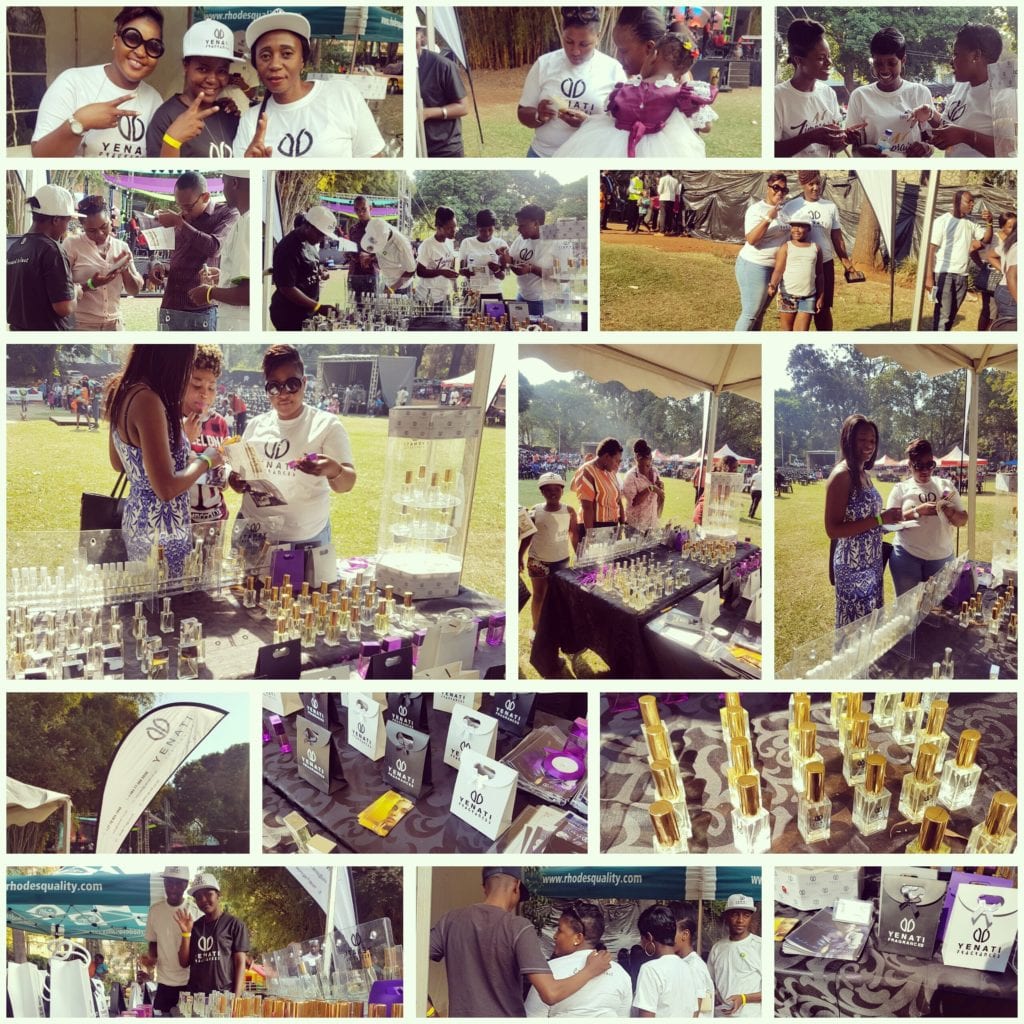
[bctt tweet=”I felt the need to become known in my region before moving to West or East African countries @tinnasusan” via=”no”] The first step Tinna-Susan Mereki took towards building her network of distributors was to reach out to a friend. Tinna-Susan is the founder of Yenati Fragrances and Yenati Brand Communications. Driven by her passion to promote authentic African brands, she has successfully managed to design and develop a cosmetics brand that provides the highest quality products at the most competitive price. Yenati Fragrances also fosters philanthropic work. They offer business starter packs to financially challenged single mothers or widows through their distributor network. Also, they have a programme where fragrance packages are given to students from poor homes who have done exceptionally well throughout the year. Tinna-Susan has built a network of over a 150 distributors for Yenati Fragrances in the Southern African region in a space of a year. Curious to know how to build your own network of distributors? Look no further, Tinna-Susan willingly shares advice from her experience. Reaching out to your networks It was through an acquaintance that Tinna-Susan started building her network of distributors. “[My friend] became interested in the business after seeing me post my products on Facebook. I told her I could supply her with stock and she could help me distribute my products. She took it on and after selling my products for a while, I persuaded her to connect her other friends to join my company. It was not difficult to convince her because she was happy with my products. I offered an incentive of a cash payout for every distributor she connected.” Tinna-Susan then started to repeat the process with other distributors and slowly her network started to grow. Choosing the countries to start in Tinna-Susan was born in Masvingo, Zimbabwe and was raised between Zimbabwe and South Africa. So when deciding which African countries she wanted to work in, she just went with what was familiar. “I decided to work in Zimbabwe first, being my home country, I felt I could manoeuvre my way around the nation. I knew the trade secrets, the ins and outs, the market and the competition. “This enabled me to set up my business with ease. My next target was South Africa, as it is the country of my residence. Other SADC countries followed as I felt the need to become well known in my region before moving up to West African or East African countries.” Namibia, South Africa and Tanzania have opened up their doors to Yenati and they have been doing business in these countries consistently. Tinna-Susan also gets a lot of enquiries from countries like Ghana, Nigeria, Uganda, Botswana, Malawi, Mozambique, Kenya. Always up for growth, she is hoping to start building networks in those countries soon. [bctt tweet=”Want to sell your brand across Africa? Find out how @tinnasusan does it with Yenati brands” via=”no”] How to build your own network of African distributors in a year Yenati style For Tinna-Susan, the biggest tool in building Yenati’s distributors was increasing her online presence (as a business of course). Facebook alone helped her reach audiences and networks in a short space of time. “Through their “targeted reach ads” I was able to expand and stretch my advertising and select audiences based on language, gender, location, workplace or even profile keywords. I also noticed that people like to follow brands that have a good image. After I started to take care of my brand identity, people started to notice my products more. My products started to receive a lot of attention.” Another important step is to keep in touch with your network, customer care is of utmost importance. Constant communication is also key, Tinna-Susan speaks to her Yenati distributors through Whatsapp groups almost daily. “I help them with sales and marketing techniques, and I help them advertise their business by creating ads for them on our pages. I call them business partners as opposed to distributors as I believe they are partnering with me in building the Yenati brand. My business partners are very important to me and I always try to remind them of how valuable they are to the business. When they are happy and content, they begin to grow the market themselves and I always encourage them to build sales teams.” [bctt tweet=”@tinnasusan calls her distributors business partners as they’re partners in building her brand” via=”no”] Building an African entrepreneurial dream Tinna-Susan believes that the most successful Africans in future will be the ones that master the ability to partner with other Africans. “The minute we reach beyond race, tribe, and national borders, we will tap into the explosive potential of this continent. I am all about building the African dream, and it begins with us. “The dream where we trade with each other and remove border restrictions between nations, and become the United States of Africa. Where we use our countries’ natural wealth for the benefit and development of Africans as opposed to funding overseas companies. “The dream where we do not hate each other as Africans and do not kill each other through xenophobic attacks. The dream where we live in peace, harmony and pride ourselves in products made by Africans for Africans, as Dr. Strive Masiyiwa once put it, “We value Africanisation”. All the wealth comes from Africa and yet we are classified as ‘Third World’. We need to change to the ball game.” [bctt tweet=”Successful Africans will be the ones that master the ability to partner with other Africans @tinnasusan ” via=”no”] Four lessons learned from distributing Finally, I asked Tinna-Susan the four lessons she’s learned from distributing Yenati across Southern Africa. Here’s what she shared; Put measures that protect the brand and business. “I have had my fingers burnt through over-trusting.” she says. Always be innovative as they are other similar products on the market. You always have to find ways to remain competitive and relevant with eminence. Be accommodating. “I have learnt
